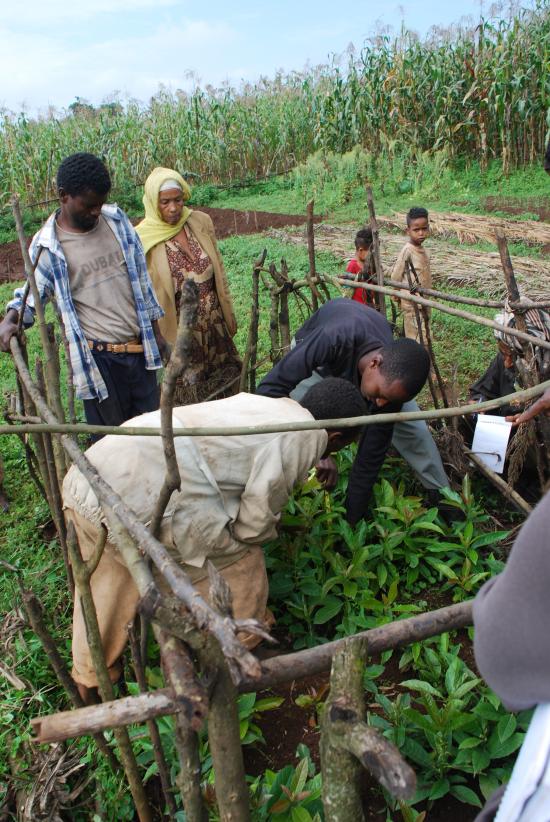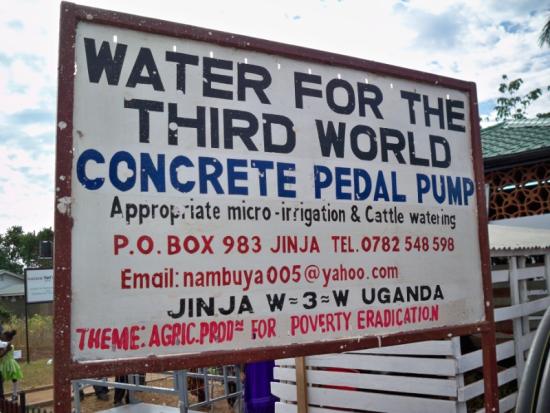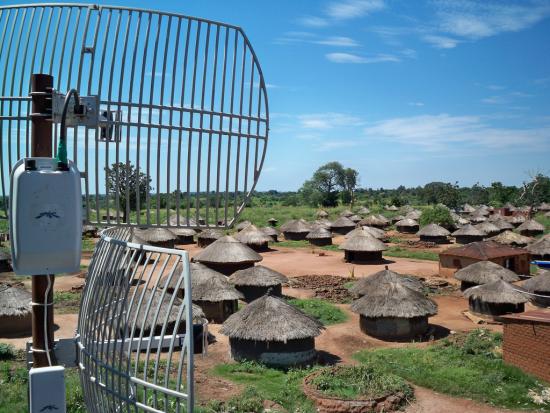A new School of Information course trained students to develop social enterprises for rural developing regions, using developments in information and communication technologies (ICT). The course, "Social Enterprise using ICTs for International Development", was taught by I School assistant professor Tapan Parikh, and built on related student research in East Africa and South Asia in summer 2009. As the culmination of the course, four interdisciplinary student groups presented their business plans for innovative ways of using technology for rural development.
Plans included an SMS notification scheme for regions with intermittent and unreliable water systems, a geospatial data enterprise using an innovative new "smart paper", an online platform for distributing indigenous folk music, and a communications hub for agricultural export markets.
The student groups presented their business plans for a panel of expert judges, who awarded a $5000 travel grant to the "NextDrop" project to pursue their business plan.
In developing their business plans, students built upon the research work done during summer 2009, when several teams traveled to East Africa and South Asia to assess local needs, and to identify project ideas and partners.
The course focused on the creation of sustainable enterprises based on ICT innovations supporting international development — including starting new businesses, non-profit initiatives and public sector projects. The class was particularly interested in improving access to knowledge for smallholder farmers in the developing world.
The class studied with a number of guest lecturers on topics like social entrepreneurship, program evaluation, social impact assessment, and writing a business plan. In addition, students learned about some of the unique challenges of working in developing regions.
The students took an iterative, design-oriented, feedback-driven approach to developing and refining their business plans. At each stage, students received feedback from both experts and their peers.
Social Enterprise Proposals
NextDrop: Connecting Water Utilities and Households
Matt Gedigan, Emily Kumpel, Ari Olmos, Niranjan Krishnamurthi, and Thejo Kote
Irregularly-piped water is a problem in one-third of African and Latin American cities and over ninety percent of cities in South Asia. In some of these regions, water may run only once every two to five days. Although the schedule for running water may be available in the newspaper, printed schedules are often incomplete or unreliable. Instead, many people rely on word-of-mouth to learn when they will have running water.
NextDrop would address the problem of unpredictability by providing a service with better advance information about water schedules. NextDrop would collect information from water boards and valvemen and provide an SMS (text-message) service for informing households and water customers.
More reliable information would enable households to plan how much water to save for the next day or when to be home for the water, and would help businesses know when to arrange for a tanker truck to supplement the irregularly-piped water. Increased transparency and reliability could also help reduce corruption.
Ektara
Emily Smith, Neha Kumar, and Dhawal Mujumdar
Ektara, named for the single-stringed instrument of traditional Indian folk music, would provide an online platform for folk music from different developing regions. Local performing artists currently have no easy way to reach the worldwide audiences who would be interested in authentic international folk music.
Ektara aims to become a "fair trade" solution for performing arts, by providing a partnership between local artists, customers, and partner organizations in each local country or region. By creating a new market for such music, Ektara would improve the lives of underprivileged folk artists from developing world and also provide a culturally immersive experience for its customers.
groundtruth
Nathan Gandomi, Michael Manoochehri, and Sarah Van Wart
Up-to-date maps and geospatial data are often missing or inaccurate in developing regions. The lack of reliable maps hinders all kinds of development work, including emergency services, infrastructure engineering, and relief organizations.
Groundtruth would provide rugged geospatial data collection and management services for developing regions; potential customers include NGOs as well as other organizations who do location-based planning, evaluation, or monitoring.
In addition to aggregating existing public sources of maps and data, groundtruth would collect new geospatial data using an innovative "smart paper" technique, which combines the simplicity and ease-of-use of paper with the scalability and reliability of computer systems. A scaled pricing model would make most data and maps freely available to the public, while providing custom analysis and visualization services for larger clients.
Community Connections: Community Development through Data Sharing
Stefan Jacob, Becky Hurwitz, Sean Marimpietri, Mohit Gupta, and George Hayes
Agricultural trade in developing regions is often hindered by the lack of communication; researchers estimate that 57 percent of rural population in sub-Saharan Africa have little or no market access, even though buyers would love to have access to their products.
For example, rural Ugandan villagers grow highly valuable oranges, which would be worth $30 per kilogram in major markets. But because the villagers are hours away from any major market, their only option is to sell them to local traders at much lower prices. Meanwhile, regional fruit exports are interested in buying local oranges, but can only buy in bulk from major markets at high prices. Lack of coherent market information prevents farmers from getting the best prices and prevents exporters from access to the most desirable crops.
Community Connections would train and employ community data collectors to create a third-party information clearinghouse of relevant, accurate data; the information would help NGOs and private sector firms improve their product and service offerings. By improving market linkages, the project would result in better-informed buyers and sellers and a more appropriate distribution of products and services.













